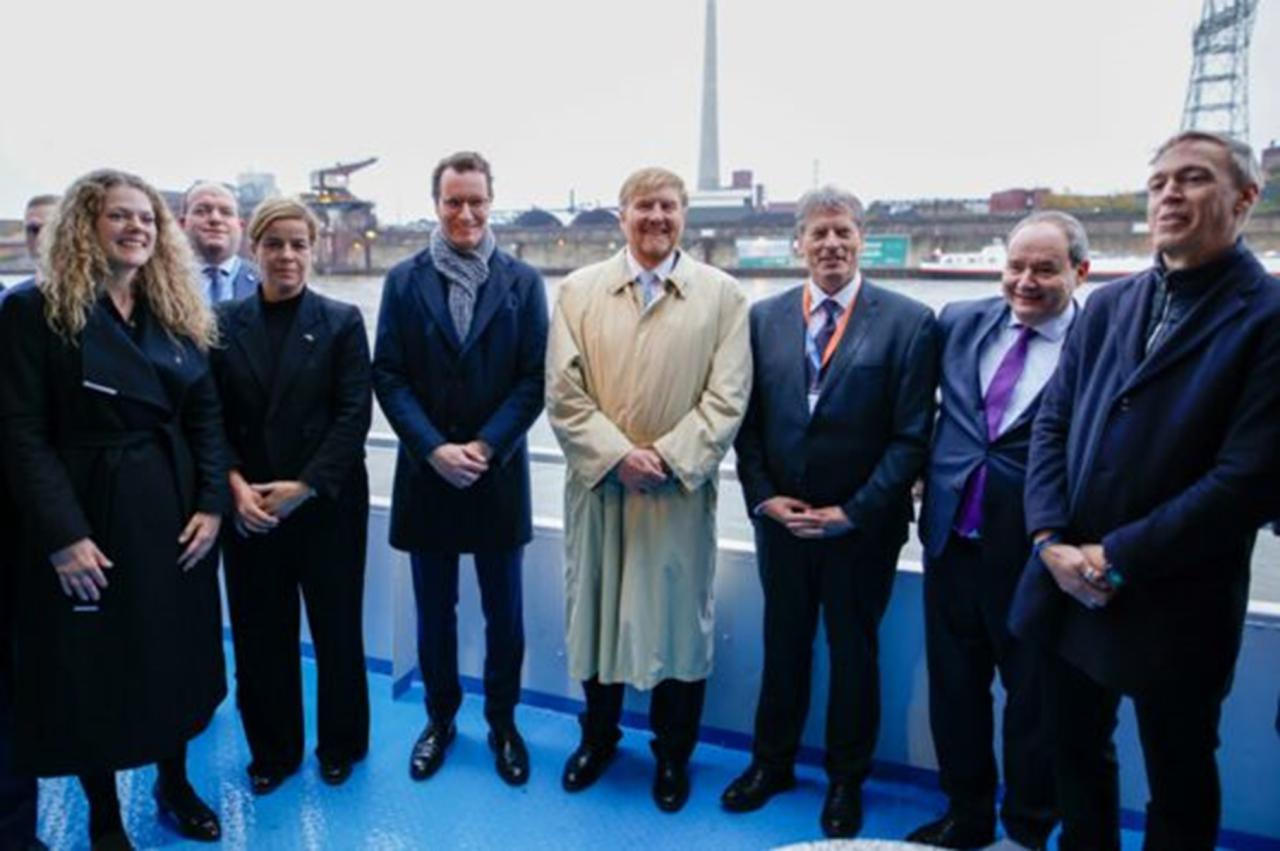● OCI Global provides ROHM with ISCC
PLUS-certified bio-ammonia is the first in the industry to use bio-ammonia to produce methyl methacrylate.
● Compared with traditional gray ammonia, OCI
Global’s bioammonia can reduce greenhouse gas emissions by more than 70%
● This cooperation fully proves that OCI
Global and ROHM’s leadership in green ammonia production and downstream environmentally friendly manufacturing are expected to facilitate ROHM’s use of renewable biofeedstocks in the production of methyl methacrylate and PLEXIGLAS®

OCI, the world’s third largest nitrogen fertilizer and ammonia producer
Global (Euronext: OCI) is supplying bioammonia for the production of methyl methacrylate (MMA) to ROHM, a leading global producer of methacrylates, a well-known global brand An important precursor material for acrylic PLEXIGLAS®.
In mid-November, OCI
Global has delivered the first batch of bio-ammonia to ROHM in a bid to reduce the carbon footprint of important everyday products that rely on methyl methacrylate, including cars, aircraft windows, buildings, window products and dental products. The collaboration demonstrates the feasibility of low-carbon ammonia in industrial processes, supporting other downstream industries and end consumers in achieving decarbonization goals.
King Willem-Alexander of the Netherlands witnessed OCI during a visit to local hydrogen projects
Global’s process of delivering bio-ammonia to ROHM. The itinerary showcases the hydrogen corridors that connect the Dutch port of Rotterdam to other regions and inland ports such as the German port of Duisburg to supply hydrogen products to Europe.
Currently, OCI Global is the only company in Europe and the United States to obtain ISCC
PLUS certified bio-ammonia producer. Its bioammonia uses biomethane from waste and biological residues as well as biodegradable components from industrial and municipal waste as raw materials. Compared with traditional gray ammonia produced using fossil raw materials, OCI
Global’s bio-ammonia can reduce greenhouse gas emissions by more than 70% (based on a carbon footprint of 2.66 kilograms of carbon dioxide equivalent per kilogram of ammonia.)
OCI Global CEO Ahmed
El-Hoshy said: “We have expanded our supply of renewable, low-carbon ammonia and methanol through nine global plants in the United States and Europe, as well as our joint venture with Abu Dhabi National Oil Company (ADNOC) Fertiglobe in the Middle East and North Africa region. scale and already leading the industry. This delivery highlights our key role in building the hydrogen corridor to supply low-carbon ammonia from the Port of Rotterdam to all of Europe. By partnering with other industry leaders like Rohm, we are able to Continue to lead the way and justify low-carbon products within the existing value chain. We are excited about the opportunity to work with other customers to achieve this goal. The industrial sector currently accounts for approximately 20% of the global ammonia market. By By enabling the transition to low-carbon ammonia for the industrial sector, we can continue to produce important downstream products in a sustainable way and create a better future.”
ROHM Chief Operating Officer Hans-Peter
Hauck said: “As a global manufacturer of methyl methacrylate products such as PLEXIGLAS®, ROHM is committed to advancing an ambitious climate agenda and achieving the goal of reducing greenhouse gas emissions by 30% by 2030. Ammonia is A core raw material for the production of methacrylate products such as PLEXIGLAS®, DEGALAN® and DEGALAN® for road markings. We are therefore excited to enter into this partnership to further significantly reduce the carbon footprint of our processes and products. Footprint is very excited. Low carbon ammonia alternative made from biogas benefits us in securing ISCC
Methacrylate monomers, molding compounds and resins are produced in PLUS certified factories to provide customers with sustainable products and solutions. We are committed to driving sustainable transformation and firmly believe that this change can only be successfully achieved through value chain partnerships and close collaboration. ”
ROHM produces methyl methacrylate at its production sites in Worms and Wesseling in Europe as well as in the United States and China. Currently, ROHM is building a methyl methacrylate factory at its Bay City production base in Texas, USA. It will use the new production technology LiMA to significantly reduce the carbon footprint of the production of methyl methacrylate monomer and reduce the impact on the production of methyl methacrylate monomer. environmental impact. In addition to new production technologies, ROHM has also launched the environmentally friendly product range “proTerra”, which contains recycled high-performance materials and also reduces its carbon footprint.

 微信扫一扫打赏
微信扫一扫打赏

